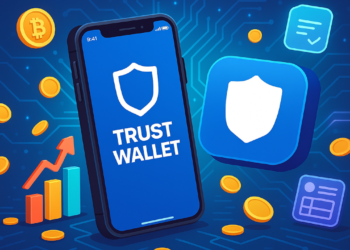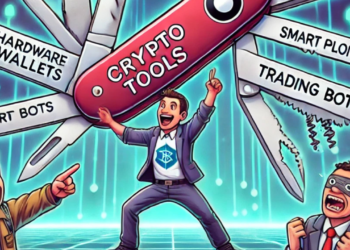Introduction
Cardano (ADA) is one of the most promising blockchain projects in the cryptocurrency space. Designed as a more scalable and sustainable alternative to Ethereum, Cardano has captured the attention of investors, developers, and blockchain enthusiasts worldwide. But what is Cardano, how does it work, and what does the future hold for it? In this guide, we’ll break down everything you need to know about Cardano, its technology, use cases, and future potential.
What is Cardano (ADA)?
Cardano is a decentralized blockchain platform created in 2017 by Charles Hoskinson, one of the co-founders of Ethereum. It is designed to provide a more secure and scalable infrastructure for smart contracts and decentralized applications (dApps).
Unlike many blockchain projects, Cardano uses a scientific and peer-reviewed approach to development, ensuring that every upgrade is thoroughly researched before implementation.
Key Features of Cardano:
✅ Proof-of-Stake (PoS) Blockchain – Cardano operates on a PoS consensus model, which is more energy-efficient than Bitcoin’s Proof-of-Work (PoW). ✅ Scalability – Cardano is built to handle thousands of transactions per second (TPS) as its network evolves. ✅ Interoperability – The platform aims to enable seamless transactions between different blockchain networks. ✅ Sustainability – Uses a treasury system to fund development without external investors controlling the project.
How Does Cardano Work?
Cardano is divided into two layers to improve performance and security:
1️⃣ Cardano Settlement Layer (CSL): This layer handles transactions and payments, ensuring fast and low-cost transfers. 2️⃣ Cardano Computation Layer (CCL): The second layer powers smart contracts and dApps, making it more flexible and secure.
The network uses Ouroboros, the first peer-reviewed Proof-of-Stake (PoS) protocol, which allows ADA holders to stake their coins and participate in securing the network while earning rewards.
Cardano’s Use Cases
🔹 Smart Contracts & DeFi – Cardano enables secure and efficient smart contracts, making it a competitor to Ethereum. 🔹 Identity Verification – The blockchain is being used in education and finance to verify credentials securely. 🔹 Supply Chain Management – Companies use Cardano to track and verify product authenticity. 🔹 Financial Inclusion – Aims to provide banking solutions to unbanked populations in Africa and other regions.
The Future of Cardano
Cardano is constantly evolving, with major upgrades planned to enhance its scalability, security, and utility. Some expected developments include:
🔹 Hydra Scaling Solution – Expected to allow millions of transactions per second (TPS). 🔹 Interoperability Features – Cardano is working on cross-chain compatibility. 🔹 More Smart Contracts & dApps – As the ecosystem grows, more developers are building on Cardano. 🔹 Widespread Adoption – Governments and businesses are exploring the use of Cardano in real-world applications.
Where to Buy and Store Cardano (ADA)
If you want to buy and store ADA securely, here are some recommended platforms and wallets:
🔗 Buy Cardano on Bitvavo 🔗 Buy Cardano on Bybit
🔐 Secure Your ADA with a Hardware Wallet: 🔗 Ledger Hardware Wallet 🔗 Trezor Hardware Wallet
Fun Facts About Cardano 🚀
- Cardano is named after Gerolamo Cardano, a 16th-century mathematician.
- The ADA token is named after Ada Lovelace, the first-ever computer programmer.
- Cardano is built on Haskell, a highly secure programming language used in banking and defense.
Conclusion
Cardano (ADA) is a game-changing blockchain that aims to provide scalability, security, and sustainability. With its unique Proof-of-Stake model, smart contract capabilities, and continuous upgrades, Cardano has the potential to be a leading blockchain for decentralized applications.
Are you ready to invest in Cardano (ADA)? Make sure to buy and store it securely!
🔗 Buy Cardano on Bitvavo 🔗 Buy Cardano on Bybit 🔐 Ledger Wallet 🔐 Trezor Wallet
Disclaimer
This article is for educational purposes only and does not constitute financial advice. Always do your own research before investing in cryptocurrency.










